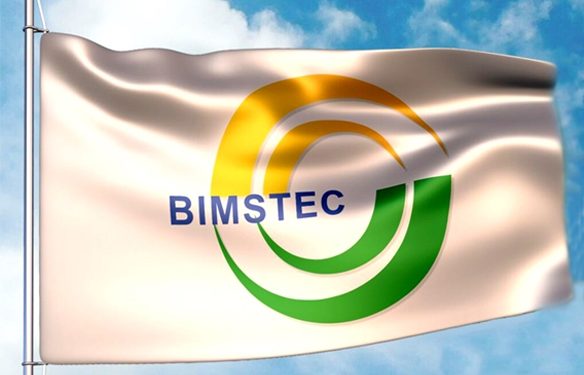After a gap of about four years, the Bay of Bengal Initiative for Multi-Sectoral Technical and Economic Cooperation (BIMSTEC) summit is slated to be held March 30. Sri Lanka, presently the chair, is keen on organising the event as it is itself passing through dire economic crisis. Seven countries of the group in south and southeast Asia namely India, Thailand, Bangladesh, Bhutan, Myanmar, Nepal and Sri Lanka, would engage in collaborative work at a time when China has been making steady inroads in the Bay of Bengal area. In fact, China has succeeded in penetrating deeply into Sri Lanka, Myanmar and Nepal through economic and diplomatic support to these countries. Meanwhile, India’s diplomatic relations with its neighbours has soured because India’s flawed foreign policy initiatives distanced these nations in the recent past.
As the Bay of Bengal zone returns to the limelight of strategic attention after years, its littoral countries are now keen to re-engage with one another for building a better future through collaboration. BIMSTEC could provide a natural platform to reinforce ties and explore avenues of cooperation. The summit, March 30, will get an opportunity to approve the BIMSTEC Charter, BIMSTEC Master Plan for Transport Connectivity and the BIMSTEC Convention on Mutual Legal Assistance in Criminal Matters. The group will also take up the BIMSTEC Coastal Shipping Agreement and the Motor Vehicles Agreement. These instruments are vital for better integration of the Indo-Pacific region. This area has become a hot zone of muscle-flexing by China on one side and the Quad countries comprising USA, India, Japan and Australia on the other. China has been aggressively trying to establish its control in this region. The threat from the Quad group as also the new formation of Australia, the UK and the USA (AUKUS), arming Australia with nuclear-powered submarines and the advanced cyber surveillance systems, is believed to have rubbed China the wrong way. As the build-up acquires a new dimension in the wake of Russia’s invasion of Ukraine, the BIMSTEC countries can chart out a new path of advancing their own economic growth. India has greater stakes as well as a great opportunity in this grouping. It gets an opportunity to undo the damage it has done to itself by grossly trying to act big brotherly with the neighbours. As Pakistan is excluded from the group, this offers India a chance to make a collaborative approach unhindered by the much smarter foreign policy machinations of Pakistan, the way the latter has been scuttling the work of the SAARC (South Asian Association of Regional Cooperation).
All eyes in this edition of the BIMSTEC summit will be on Myanmar, whose current leader Gen Min Aung Hlaing will be participating in a multilateral summit for the first time since the army captured power February 1, 2021, overthrowing an elected government. India was put in a tricky situation since the army coup in Myanmar. After letting China consolidate its position in Myanmar, India could ill afford to further antagonise the military junta. India stopped short of condemning it directly but only raised concerns over the democratic process trampled by the junta. At the same time, India was not disturbed by the ouster of Myanmar’s democratic leader Aung San Suu Kyi, who was sentenced to a four-year jail term by a Myanmar court. India’s efforts to reach out to Suu Kyi were superficial. Therefore, when a bureaucrat like Foreign Secretary Harsh Vardhan Shringla, instead of a high ranking politician, supposedly tried and was not allowed to meet her during his visit to Myanmar late December last year, the government claimed its efforts were frustrated.
Even though India wants to work with Myanmar’s junta regime, it does not want to be seen sharing the stage with the leadership at a summit right now. This is India’s dilemma. It is believed that Prime Minister Modi will only take part in the summit virtually and not physically. The event is to follow the hybrid form of both virtual and physical sessions.
Sri Lanka’s desperation for hosting the summit is obvious as it cannot solely depend on China, while its economic crisis is deepening and its ethnological tension simmering. There are long queues in front of petrol stations across Sri Lanka and the people are suffering due to a steep rise in prices of essential commodities. During the past three months, India has provided assistance of US$2.4 billion including a $500 million loan deferment and $1 billion credit line to enable the supply of essential commodities to Sri Lanka. Colombo has also sought help from the International Monetary Fund despite its earlier reservation of taking help from that agency.
If India can play its cards well, the BIMSTEC summit may offer a window of opportunity to try to wean its eastern, north-eastern and southern neighbours away from the influence of China and Pakistan. Given India’s recent messed up foreign policy vis-à-vis its neighbours, this seems a tall order.







































